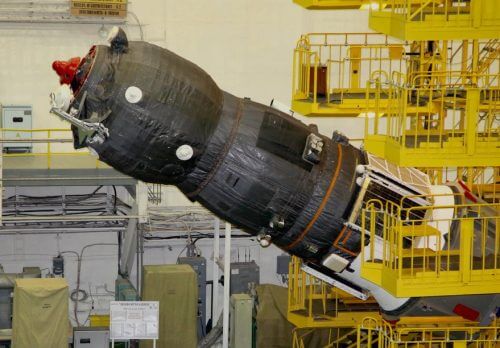The Progress 65 cargo spacecraft lifted off from Baikonur in Kazakhstan at 20:51 local time. The indicators from the launcher during the first minutes of the flight were mostly normal, but the Russian flight controllers reported telemetry data indicating a problem with the third stage of the launcher, which allegedly happened when it was ignited

The Russian space agency Roscosmos has confirmed that the Progress 65 cargo spacecraft launched yesterday towards the International Space Station has been lost. The spacecraft was launched from the Baikonur Cosmodrome in Kazakhstan on a Soyuz rocket and crashed in Siberia about six minutes later due to a malfunction in the third stage of the launcher.
The Progress 65 cargo spacecraft lifted off from Baikonur in Kazakhstan at 20:51 local time. The indicators from the launcher in the first minutes of the flight were mostly normal, but the Russian flight controllers reported telemetry data indicating a problem with the third stage of the launcher, which as mentioned happened when it was ignited.
The NASA website states that the six crew members living aboard the space station are safe. Both wings of the station - the Russian and the American - continue to operate and their combined supply is at a reasonable level.
NASA emphasizes that the spacecraft did not carry any critical supplies for the American component of the station (USOS). The next mission scheduled to deliver cargo to the station is the Japan Space Agency's (JAXA) H-II Transfer Vehicle (HTV)-6 next Friday, December 9. In January, the launch of a supply spacecraft by SpaceX is planned, if it receives permission from the Federal Aviation Administration to return to flying following the explosion of the launcher on which the Israeli satellite Amos 6 was placed. In March, the launch of Orbital's Cygnus spacecraft is planned, again on a ULA launcher and not About the company's self-launcher from the model that exploded about two years ago in Virginia.
The cargo carried by the spacecraft Progress 65 included more than 2.6 tons of food, fuel, and supplies for the space station crew, of which approximately 1,400 kilograms of fuel, 112 kilograms of oxygen, 925 kilograms of water, and 2,750 kilograms of spare parts, consumables Science experiment hardware. Among the US supplies on board were spare parts for the station for the life support system, research equipment, crew supplies and crew clothing for the three Russian cosmonauts staying on the station. All of these are interchangeable, says NASA.
In the years 2014-2015, a series of malfunctions occurred in supply spacecraft one after the other. When a SpaceX cargo spacecraft exploded during launch at Cape Canaveral. Orbital's Cygnus supply spacecraft exploded during a failed launch from Wallops Island in Virginia, and the Russian Progress 59 spacecraft managed to reach space but not on the correct trajectory. It spun and finally returned to Earth and burned up in the atmosphere.

One response
interesting!
The numbers don't add up... 2,750 kg = 2.75 tons
The cargo carried by the spacecraft Progress 65 included more than 2.6 tons of food, fuel, and supplies for the space station crew, of which approximately 1,400 kilograms of fuel, 112 kilograms of oxygen, 925 kilograms of water, and 2,750 kilograms of spare parts, consumables Science experiment hardware.